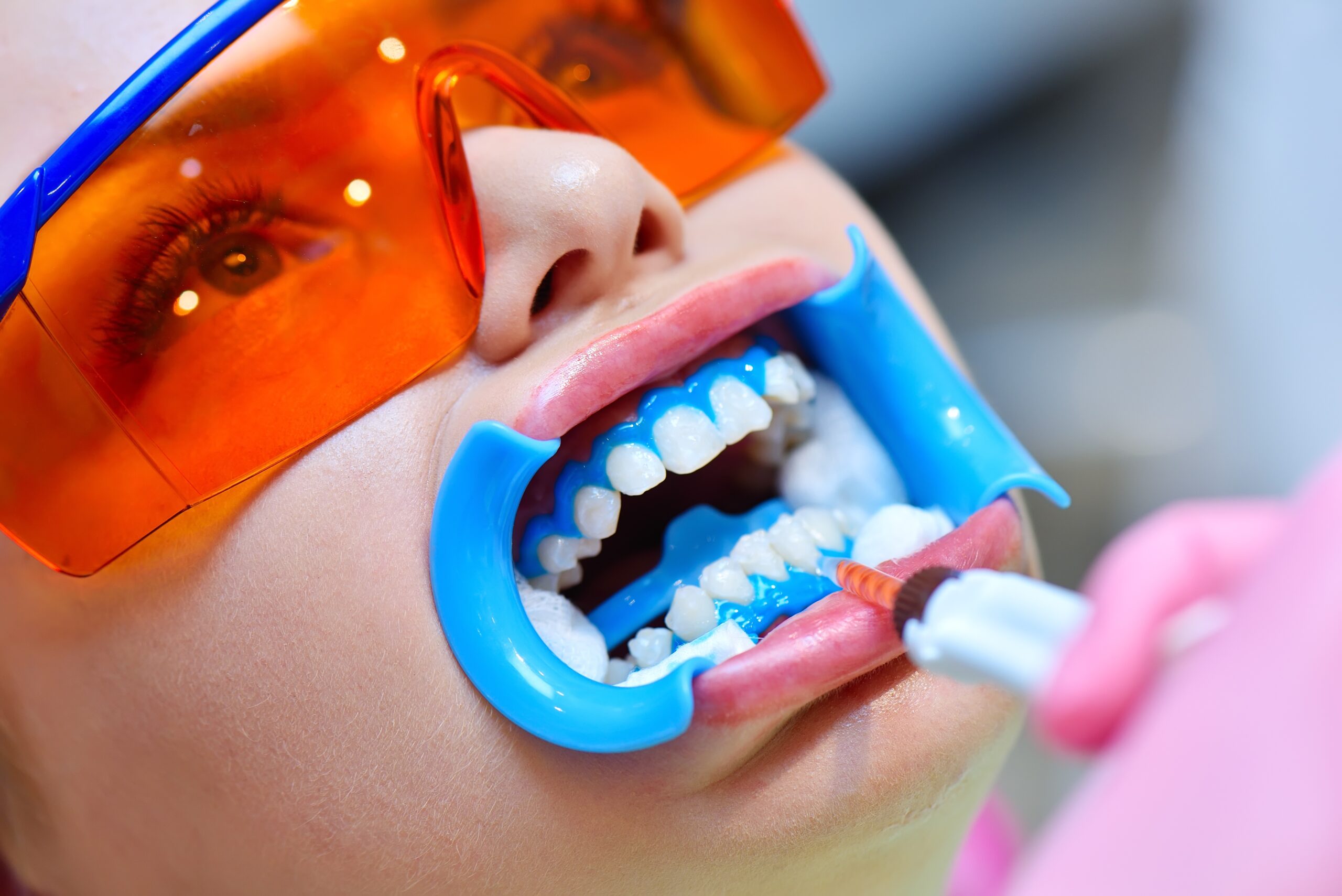TOOTH WHITENING
Tooth Whitening
Frequently Asked Questions
Is tooth whitening safe?
Tooth whitening, whether performed in-chair at a dental office or through a take-home kit provided by your dentist, is generally safe when used as directed. In-office whitening treatments typically utilize professional-grade products and are supervised by dental professionals, ensuring effective and controlled results. Take-home kits, designed specifically for individual use, come with custom trays that provide a precise fit and minimize the risk of gum irritation. Both methods are designed to enhance your smile safely while maintaining the health of your teeth and gums.
How long do the results last?
The results of tooth whitening can vary depending on several factors, including the method used, individual oral hygiene practices, and lifestyle habits. Generally, in-chair whitening treatments can provide results that last anywhere from 6 months to 2 years, while take-home kits may yield results lasting around 6 months to a year. To prolong the brightness of your smile, it’s important to maintain good oral hygiene, avoid staining foods and beverages, and follow your dentist’s recommendations for touch-up treatments when necessary.
Are there any side effects or risks associated with tooth whitening?
While tooth whitening is generally safe, some individuals may experience side effects or risks. Common side effects include temporary tooth sensitivity, which can occur during or after the whitening process, especially with stronger formulations. Some people may also experience mild gum irritation if the whitening agent comes into contact with the gums. It’s important to follow the instructions provided by your dentist and use products as directed to minimize these risks. Consulting with your dental professional beforehand can also help determine if tooth whitening is suitable for you and what precautions to take.
Can I whiten my teeth if I have dental restorations (e.g., fillings, crowns, veneers)?
Tooth whitening treatments primarily target natural tooth enamel and may not be effective on dental restorations such as fillings, crowns, or veneers. While the natural teeth can become brighter, the color of the restorations will remain unchanged, potentially leading to a mismatch between the whitened teeth and the existing dental work. If you have restorations and are considering whitening, it’s best to consult your dentist. They can evaluate your specific situation and recommend the best approach, which may include replacing or adjusting restorations to achieve a harmonious, bright smile.
What should I do to maintain the whiteness of my teeth after the treatment?
To maintain the whiteness of your teeth after treatment, consider the following tips:
Practice Good Oral Hygiene: Brush your teeth at least twice a day and floss daily to keep your teeth clean and free from plaque buildup.
Avoid Staining Foods and Beverages: Limit consumption of foods and drinks that can stain teeth, such as coffee, tea, red wine, and berries. If you do indulge, rinse your mouth with water afterward.
Use a Straw: When drinking staining beverages, use a straw to minimize contact with your teeth.
Touch-Up Treatments: Follow your dentist’s recommendations for occasional touch-up treatments using at-home whitening kits or gels to refresh your smile.
Regular Dental Check-Ups: Schedule regular visits with your dentist for cleanings and professional advice on maintaining your bright smile.
By following these practices, you can enjoy the lasting results of your tooth whitening treatment and keep your smile looking its best!
Are over the counter teeth whitening products effective?
No, over-the-counter teeth whitening products are generally not as effective as professional treatments. This is primarily because these products often contain lower concentrations of whitening agents, which may not provide the same level of whitening results as those used in dental offices. Additionally, the fit of over-the-counter trays is typically not custom-made, leading to uneven application of the whitening agent and a higher risk of gum irritation. For optimal results and safety, it’s advisable to consult your dentist for tailored whitening solutions.

